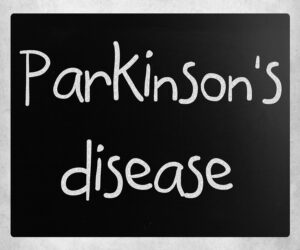Symptoms of Parkinson’s Disease That Seniors And Families Shouldn’t Ignore
April is Parkinson’s Awareness Month which means it’s a fantastic time for seniors and their families to learn more about Parkinson’s disease and how to recognize the symptoms of it. There are more than a million people in the U.S. who have Parkinson’s disease. Most people are over the age of 60 when they are diagnosed. Parkinson’s disease causes damage to the brain, and over time it causes paralysis and dementia. Many seniors who have Parkinson’s will eventually require 24-hour home care. There is no cure for Parkinson’s disease. But recognizing the symptoms of Parkinson’s disease early can mean that your senior loved one can get start getting treatment and delay the progression of the disease for as long as possible. Some of the most common symptoms of Parkinson’s disease are:
Tremors

24-Hour Home Care in Lowell, MI: Parkinson’s Disease
Tremors, or spasms in the hands and feet that your senior loved one can’t control, are the most recognizable symptom of Parkinson’s disease. Sometimes tremors can be caused by other conditions or by a change in medications but if there is a history of Parkinson’s disease in your family and you notice that your senior loved one is starting to have tremors in their hands you should get them to a doctor to be checked for Parkinson’s disease right away.
Stiff muscles
Stiff muscles can be caused by many conditions, but if you notice that your senior loved one has unusually stiff muscles or if they have periods where their muscles are rigid and unable to relax regularly and there is a family history of Parkinson’s or you have noticed other symptoms of Parkinson’s disease it’s definitely time for a doctor’s appointment to see what is causing the stiffness.
Difficulty Sleeping
If your senior loved one has generally not had any sleep problems but they start developing insomnia, or they can’t stay asleep, or they start having other sleep disturbances and they are showing other symptoms of Parkinson’s disease they should see a doctor as soon as possible. 24 hour home care can help you document and track your senior loved one’s symptoms by having a home care provider with your senior loved one overnight. The information that the care giver collects could be very helpful to the doctor who is trying to find out whether or not your senior loved one has Parkinson’s disease.
Difficulty Chewing And Swallowing
Many seniors have trouble chewing or swallowing because they have dry mouth or they are dehydrated. But if your senior loved one is having trouble physically moving their muscles to bite, chew, and swallow that could be more than just dehydration. It could indicate Parkinson’s disease.
Shuffling
Have you noticed that your senior loved one has suddenly started shuffling when they walk like they can’t quite pick their feet up all the way? This is a common symptom of Parkinson’s. It’s also a dangerous symptom because it can lead to falls. Get your senior loved one checked out immediately so that the doctor can decide if your senior loved one should be using a cane or a walker to prevent any falls that could cause serious injuries.
If you or someone you know needs help with 24-Hour Home Care in Lowell, MI, contact Gauthier Family Home Care. We provide quality and affordable home care services in our community. Call us at (616) 258-2300 for more information.
Sources:
https://parkinsonsdisease.net/elderly-population
https://www.webmd.com/healthy-aging/what-to-know-about-parkinsons-symptoms-in-adults
- Ensuring a Smooth Transition From Hospital to Home - June 4, 2025
- Caregiver of the Month – June 2025 - June 2, 2025
- Common Sense Summer Tips for Seniors to Help Them Beat the Heat - May 28, 2025

